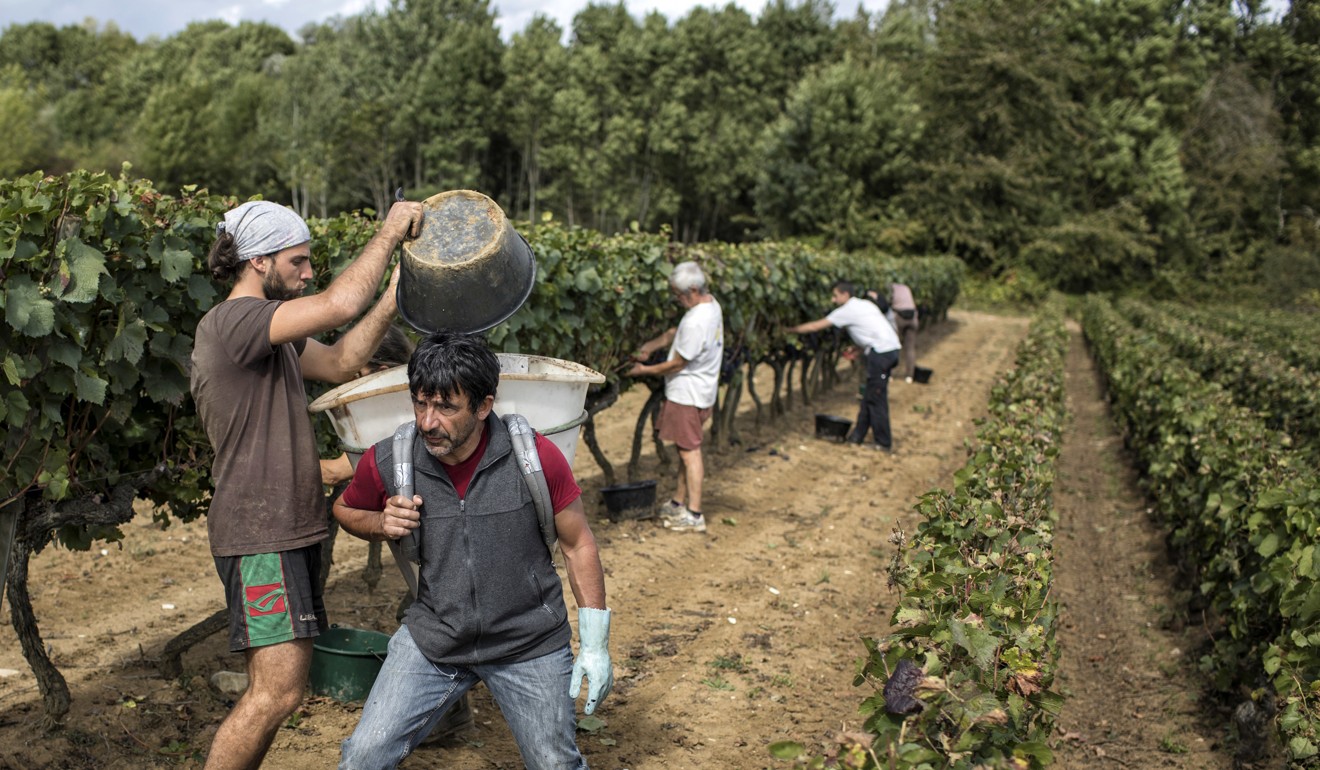
Extreme weather drags European wine output to its lowest level since the second world war
Europe’s wine production has dropped to levels unseen since the second world war as extreme weather battered top producers Italy, France, Spain and Germany, the main farmers’ union said on Tuesday.
The Copa-Cogeca union said quality was high and prices will rise but not enough to compensate producers for losses as drought and frosts linked to climate change damaged grapes.
“This is the lowest (European) harvest that we have seen since World War II,” Copa-Cogeca executive Thierry Coste told reporters.
Total wine production across the European Union is an estimated 145 million hectolitres for 2017, down about 14 per cent from last year’s levels, the union said.
“This year our vineyards have been badly affected by the impact of climate change and extreme weather events ranging from frost to drought,” Coste added.

Many producers harvested grapes two weeks early on average, he said.
“The quality of the grape is nevertheless expected to be very good across Europe which should make for an excellent wine,” Coste said.
The union did not provide details of the previous lowest output but a spokeswoman said it was the lowest as leading producers Italy, France, Spain and Germany saw sharp declines.
Italy’s production fell to 40 million hectolitres, down about 26 per cent and France’s output to around 37 million hectolitres, about 18 per cent below last year.
Experts already predicted in August that France would suffer its poorest wine harvest since 1945 after an unusually mild March and frosty April, although a hot summer would deliver top vintages.
The 2016 harvest was already one of the poorest in 30 years.
Spain’s output dropped to an estimated 36 million hectolitres, down 20 per cent from 2016, Copa-Cogega said.
Germany is estimated at 7.5 million hectolitres, down from about 8.5 million hectolitres last year. But Portugal, estimated at six million hectolitres, saw output rise around 10 per cent over 2016.
Wine output in the four leading producers also declined in 2016 from 2015, though by a smaller amount.

.png?itok=arIb17P0)